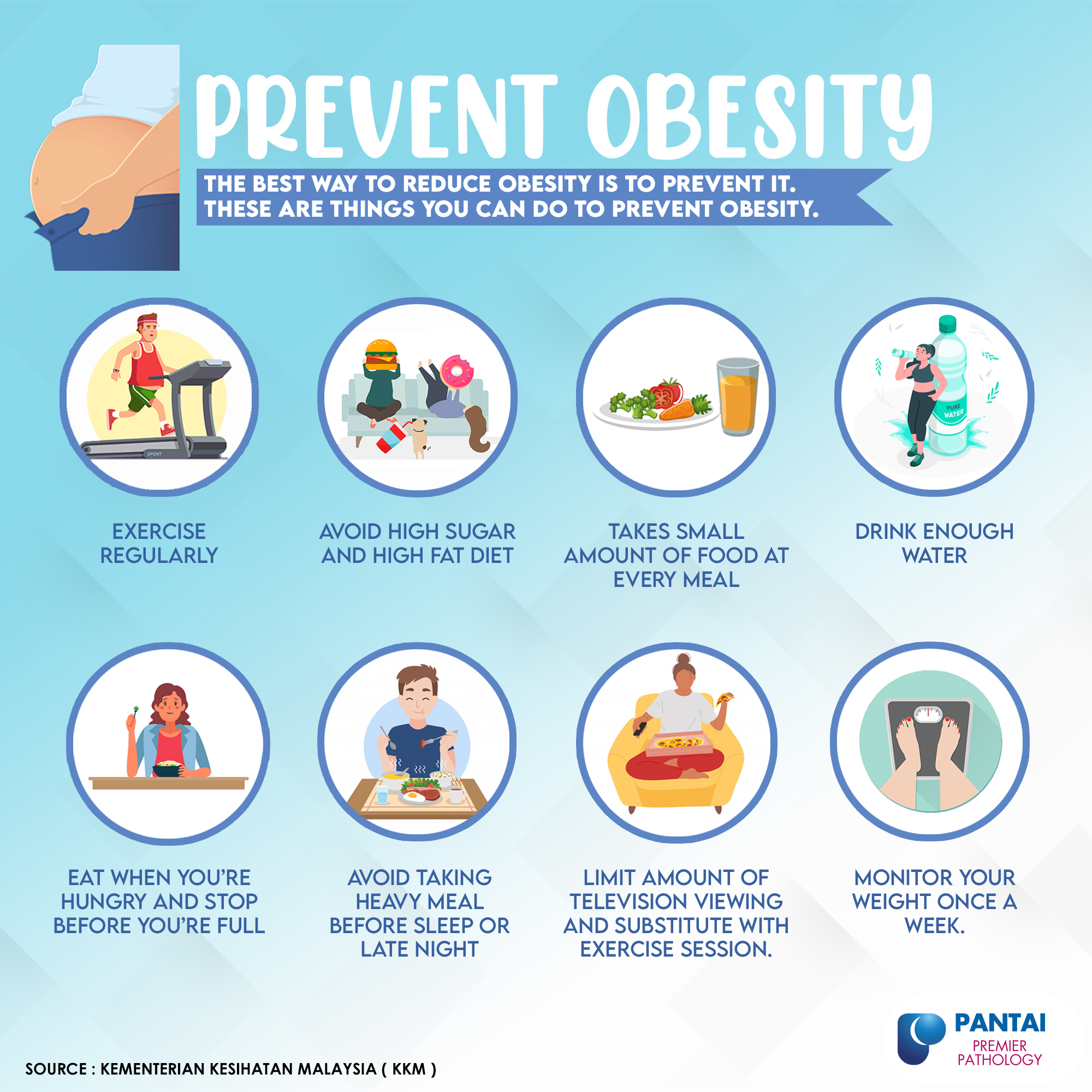Obesity in adult
Obesity is a complex condition characterized by excess body fat which results in excessive weight.
The prevalence of being overweight and obese in Malaysia has increased by 29% and 14% respectively over the recent years.
There are many factors that can contribute to obesity. External factors are such as diet which is high in fat and sugar content that exceeds the daily requirement, lack of physical activity and exercise and consumption of certain medication like steroids, whereas, genetic factors are such as age, gender, family history and other internal health conditions.
Obesity has been associated with health changes and an increase in the prevalence of chronic diseases in the population which is contributed by alteration in dietary habits and a sedentary lifestyle. Besides, obesity can cause serious health implications both physically and psychologically. Physically it can cause an increase in the risk of getting diabetes, fatty liver, metabolic syndrome, sleep disorder and breathing difficulties. It also contributes to moderate risk of getting chronic diseases such as cardiovascular disease, hypertension, heart failure, gout, arthritis and certain types of cancer. Psychologically it can cause problems such as depression, lowered self esteem and other forms of social stigmatization.
The best way to reduce obesity is by preventing it. Obesity can be prevented by exercising regularly, avoiding diet high in sugar and fat, taking food proportions that are small at every meal, drinking an adequate amount of water daily, eating only when you are hungry, avoiding heavy meals before bedtime or late night and monitoring your weight every once a week.



